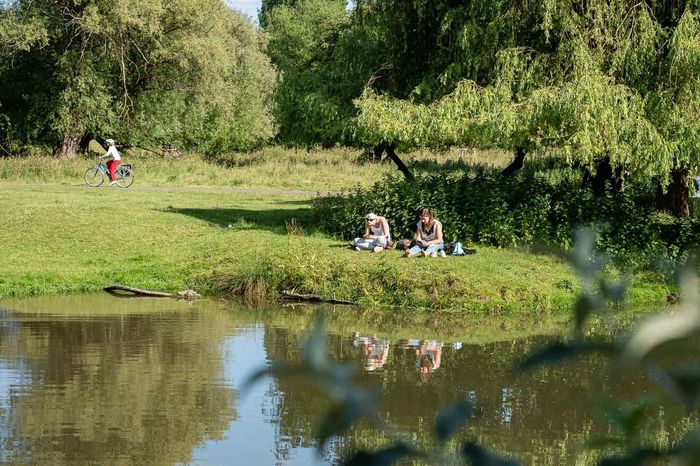Concerns raised over impact of East West Rail on environment and ‘quality of life’
Local councils say East West Rail could have negative impacts on local environment and affect residents’ mental health

Local councils have raised concerns over plans for the future development of East West Rail (EWR), which will connect Oxford and Cambridge by train, in an ongoing consultation.
EWR will create a direct rail link between Oxford and Cambridge for the first time in decades. The journey is expected to take 90 minutes – an hour faster than by car. The project includes plans to construct a new railway between Cambridge and Bedford, which will pass through South Cambridgeshire.
In a draft response to a public consultation on the plans, Cambridgeshire County Council (CCC) has highlighted concerns over the “catastrophic impact” the project could have on barbastelle bats living in nearby Wimpole and Eversden Woods. While the CCC explained that it supports the strategic objectives of EWR, including employment, new housing, and improved connectivity, it is worried that the new infrastructure will “result in losses to wildlife sites, habitat and species”.
Cambridge City Council officers have also expressed concerns in their response to the consultation. Current EWR plans allow a potential increase in capacity for rail freight, which city councillors claim could impact the “health, well-being, and quality of life” of Cambridge’s residents. The councillors say their concern is due to “traffic, noise, vibration, air quality and emissions, light pollution, community severance, dust, odour, polluting water and/or hazardous waste.”
The consultation follows the government’s commitment to EWR in the budget last year, in which it pledged its support to deliver the project in full. Chancellor Rachel Reeves said that the new train line would bolster Cambridge’s life science cluster, support up to 28,000 new jobs, and enable housing developments along the route. According to the government, the new line is set to boost the Oxford-Cambridge economy by £6.7 billion per year by 2050.
EWR will connect Oxford and central Cambridge to Cambridge’s science and technological cluster via Cambridge South station. The new station is currently being built on a site next to Cambridge Biomedical Campus and Cambridge’s hospitals. Announcing the consultation on EWR in November, then-Transport Secretary Louise Haigh, said the train line would “boost access to education and business opportunities,” and allow for economic growth “across the region, including Cambridge’s world-leading life science cluster”.
The CCC has also claimed that construction of the new route could have a considerable impact on the mental health of residents living close by, suggesting that EWR should create a fund for communities affected by loss of land and disruption.
David Hughes, CEO of EWR, has previously stated that in order to avoid the challenges faced by other major rail projects in recent years, EWR needs a “clear vision” of “why we’re doing it”. Speaking at the Railway Association Conference in November, he said this was to boost the “world-leading knowledge economies” of Oxford and Cambridge.
 News / Uni Scout and Guide Club affirms trans inclusion 12 December 2025
News / Uni Scout and Guide Club affirms trans inclusion 12 December 2025 News / Pembroke to convert listed office building into accom9 December 2025
News / Pembroke to convert listed office building into accom9 December 2025 News / Cambridge Vet School gets lifeline year to stay accredited28 November 2025
News / Cambridge Vet School gets lifeline year to stay accredited28 November 2025 Features / Searching for community in queer Cambridge10 December 2025
Features / Searching for community in queer Cambridge10 December 2025 News / Uni redundancy consultation ‘falls short of legal duties’, unions say6 December 2025
News / Uni redundancy consultation ‘falls short of legal duties’, unions say6 December 2025









